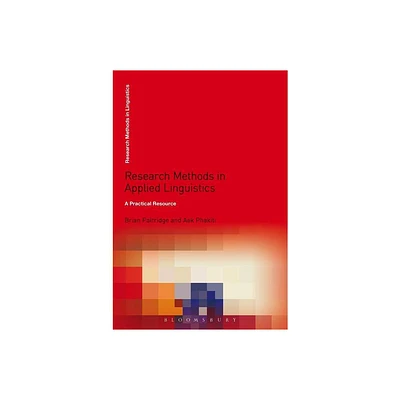Home
Decolonizing Applied Linguistics Research Latin America: Moving to a Multilingual Mindset
Loading Inventory...
Barnes and Noble
Decolonizing Applied Linguistics Research Latin America: Moving to a Multilingual Mindset
Current price: $180.00


Barnes and Noble
Decolonizing Applied Linguistics Research Latin America: Moving to a Multilingual Mindset
Current price: $180.00
Loading Inventory...
Size: Hardcover
*Product Information may vary - to confirm product availability, pricing, and additional information please contact Barnes and Noble
This collection explores the critical decolonial practices of applied linguistics researchers from Latin America and the Latin American diaspora, shedding light on the processes of epistemological decolonization and moving from a monolingual to a multilingual stance.
The volume brings together participants from an AILA 2021 symposium, in which researchers reflected on applied linguistics in Latin America, and on the ways in which it brought concerns around social justice, the legacy of coloniality, and the role of monolingual English in education to the fore. Each chapter is composed of four parts: an autobiographical section written both in Spanish or Portuguese and in English followed by a reflection on the epistemological differences between versions; a discussion in English of the research project; a critical reflection on the epistemic practices and critical pedagogies enacted in the project; and the author(s)’ understanding of the concept of decolonization and recommendations for further decolonizing the monolingual mindset of language teachers and learners. At once linguistic, epistemological, and political, the collection aims to diversify the concept of decoloniality itself and showcase other ways in which decolonial thought can be implemented in language education.
This book will be of interest to scholars in applied linguistics, sociolinguistics, and language education.
The volume brings together participants from an AILA 2021 symposium, in which researchers reflected on applied linguistics in Latin America, and on the ways in which it brought concerns around social justice, the legacy of coloniality, and the role of monolingual English in education to the fore. Each chapter is composed of four parts: an autobiographical section written both in Spanish or Portuguese and in English followed by a reflection on the epistemological differences between versions; a discussion in English of the research project; a critical reflection on the epistemic practices and critical pedagogies enacted in the project; and the author(s)’ understanding of the concept of decolonization and recommendations for further decolonizing the monolingual mindset of language teachers and learners. At once linguistic, epistemological, and political, the collection aims to diversify the concept of decoloniality itself and showcase other ways in which decolonial thought can be implemented in language education.
This book will be of interest to scholars in applied linguistics, sociolinguistics, and language education.


















